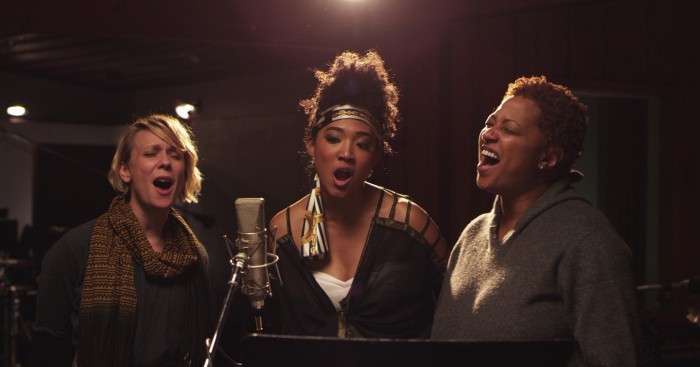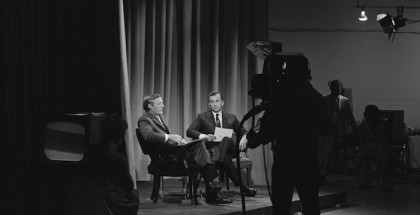VOD film review: 20 Feet from Stardom
Review Overview
Music
10Personality
9Insight
8Simon Kinnear | On 20, Jul 2014
Director: Morgan Neville
Cast: Darlene Love; Merry Clayton; Lisa Fischer
Certificate: 12
There are no second acts in American life, reckoned F. Scott Fitzgerald. Yet, if you believe recent music documentaries, sometimes the first act ends prematurely and needs a little push to carry on. Think of Standing On The Shadows Of Motown, about unsung backing band the Funk Brothers; or Searching For Sugar Man, about folk singer Rodriguez’s belated success.
20 Feet From Stardom, Morgan Neville’s film about several generations of backing singers, combines the best of those films: like Standing, it’s an oral history about the essential but neglected performers who made the stars look good; like Searching, it won the Oscar for Best Documentary Feature. The result is such pure, unvarnished focus on its subject that, even as he offers the crowd-pleasing joy of (re)discovery, Neville throws up countless subtexts and insights into the world of music and well beyond.
The film’s biggest surprise hides in plain sight – or, rather, sound. After tracking down the main players in the ‘background singer’ world, Neville then proceeds to blow us away by showing just how integral a handful of genius singers have been to pop and rock history. When Darlene Love and her band the Blossoms reunite for the first time in decades, Neville plays them hit after hit – all of them songs you’ll have grown up with. Then Merry Clayton tells the story of her contribution to The Rolling Stones’ Gimme Shelter, and Neville plays the original, unmixed session recording: it is spooky, spellbinding and even better than you ever thought.
Having wowed us thus, Neville finally asks the obvious question: why don’t we know these women (and, despite the odd male contributor, they are mostly women)? It’s a tale of record producers like Phil Spector who keep stars like Love locked into submissive contracts, and of label execs who won’t bother promoting a talent like Clayton’s because they already have Aretha Franklin and Diana Ross on their books. Neville is too smart to be crass enough to name the culprits directly, but there’s the overriding sense that a couple of isms (sex- and rac-) are to blame.
Then again: nearly every background singer interviewed had a shot at a solo career, so it’s not as if they were actively hindered. However, most never took off, and the film ponders whether it is external pressures or just that the women sing to a different beat, not driven by ego. It’s a portrait of the music industry from the viewpoint of the recording studio and the stage, rather than the hype of publicity. Neville’s subjects are honest, grafting performers who are in it because of a love of music rather than today’s X Factor-style fast-track to fame: a shift in the industry that everybody interviewed is understandably aghast at.
The film tells the story of Lisa Fischer, a once-in-a-generation talent who deliberately, intentionally, forewent the pressures of fame because she’d rather than a regular gig as the Stones’ go-to support singer. Ditto, current next-big-thing Judith Hill, who is in danger of compromising her chance at the big time by taking backing gigs, but is entirely practical about the reasons why. As one contributor notes, “if you get hooked on music, you’re fucked” – but the highs outweigh the lows.
Neville spins everything with a sure grasp of the material. The editing is loose and rhythmic, so it takes a while to spot a chronological history developing, such is the focus on personality. This enables Neville to make astute connections from one singer to another – a montage of singers explaining how they started (all of them in church choirs!) is as playful as it is insightful.
Better still, Neville’s obvious passion for the subject ensures that interviewees are engaging and candid throughout, and the director scores a notable coup by speaking to A-listers like Springsteen, Sting and Jagger, all happy to big up the power behind their thrones. Neville himself remains a gentle, off-screen presence throughout, although he still gets the biggest laugh with a brilliantly timed, wryly impertinent question about Playboy.




















